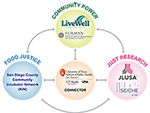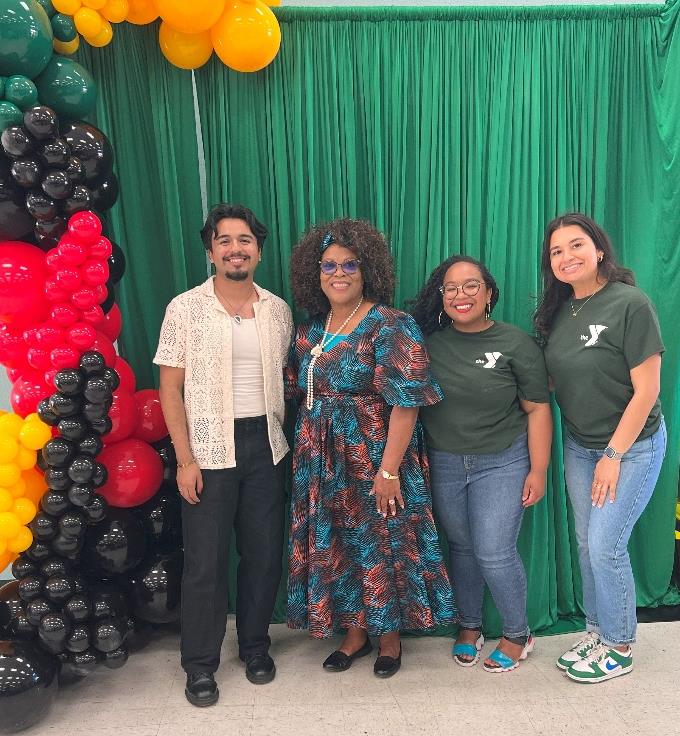KIN Network Updates and Community Engagement Efforts
Sharing About KIN
The KIN project recently presented at two gatherings: the COI Leadership Council meeting and the COI Community Domain meeting. These sessions provided an opportunity to share an overview of the project, its three core components, and anticipated outcomes, and to invite community members to get involved and stay connected.
KIN Online Presence
The KIN team is in the final stages of launching a dedicated web page on the UC San Diego Center for Community Health website. With content finalized, the page will be going live soon. This digital space will highlight KIN’s work and keep the community informed and engaged.
NOK Biweekly Meetings
Every two weeks, the KIN team meets with the Next of KIN Sub-Committee, which includes six dedicated community members and three Community Principal Investigators. These meetings are a vital part of the co-design process for the KIN Granting Program’s pilot cycle, where key program details are collaboratively developed. The team is grateful for the group’s deep commitment and excited to continue building this work together.
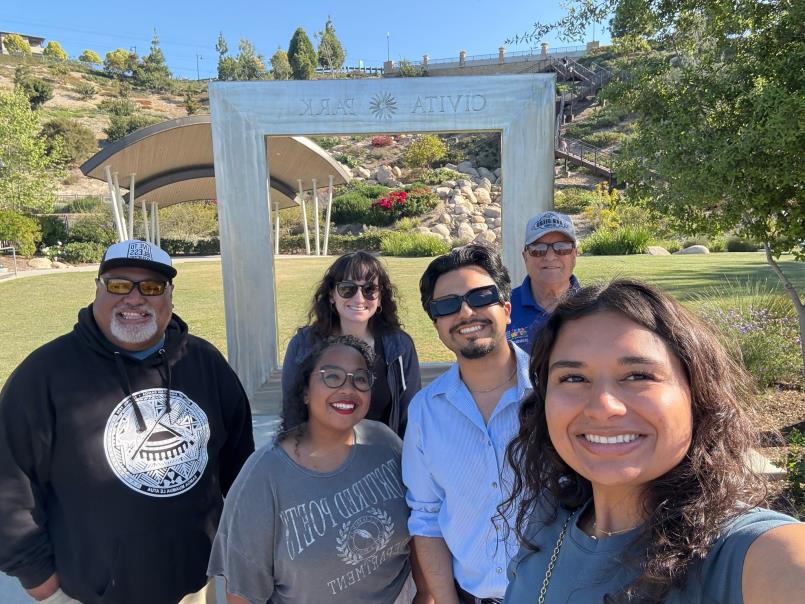
Two-Part Food Justice Workshop
On March 24 and April 8, the KIN team held a two-part food justice workshop with the Next of KIN Sub-Committee of the Community Council, a subgroup focused on co-designing the KIN Granting Program. As part of developing the program for the pilot funding cycle, one of the initial steps was to establish a shared understanding of “food justice” within the KIN context.
The workshops were grounded in a definition developed by the SDCOI Community Council, informed by StreetWyze data, which captured 8,000 stories from 1,500 San Diego County residents. Featured speakers included Blanca Melendrez and Elle Mari (Center for Community Health), along with Consuelo Martinez and Lakisha McZeal (San Diego Food Systems Alliance), who shared insights and highlighted key elements from the San Diego Food Systems Alliance Food Action Plan. These discussions helped shape the working definition that will guide the KIN Granting Program during its first funding cycle.
San Diego Childhood Obesity Initiative COI Strategic Planning
On March 21, the San Diego Childhood Obesity Initiative (COI) convened at the Southeastern Live Well Center in San Diego County to celebrate accomplishments, share updates on current efforts, and strategize future projects. Dr. Thomas R. Coleman delivered a keynote on childhood obesity, its challenges, approaches, and collective impact, followed by an overview of the COI’s history by Naomi Billups. Domain Leads also provided project updates before participants engaged in small group discussions to develop a community-informed strategic plan for COI’s three priority areas: healthy food, physical education, and healthy places.
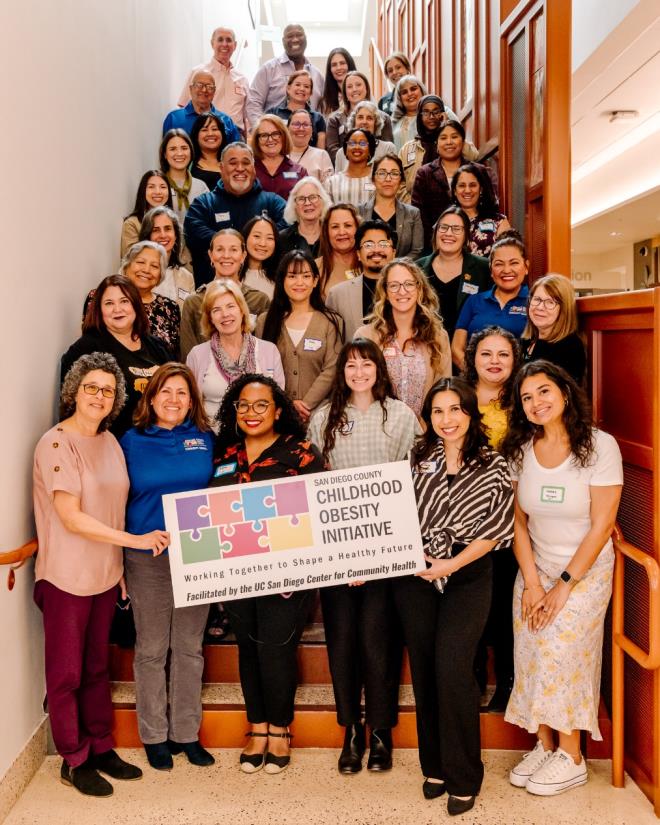
San Diego Childhood Obesity Initiative Community Council Strategic Planning
On February 28, the COI Community Council (CC) gathered at the Southeastern Live Well Center to strengthen relationships, create a two-year work plan based on the council’s three priorities (food justice, health justice, and neighborhood justice), and align these priorities with the broader COI strategic plan. Participants created a timeline of past milestones and achievements, reviewed the Council’s purpose and projects, and engaged in small group action planning. Insights and reflections from this session helped shape the priorities addressed at the COI Strategic Planning Retreat in March.
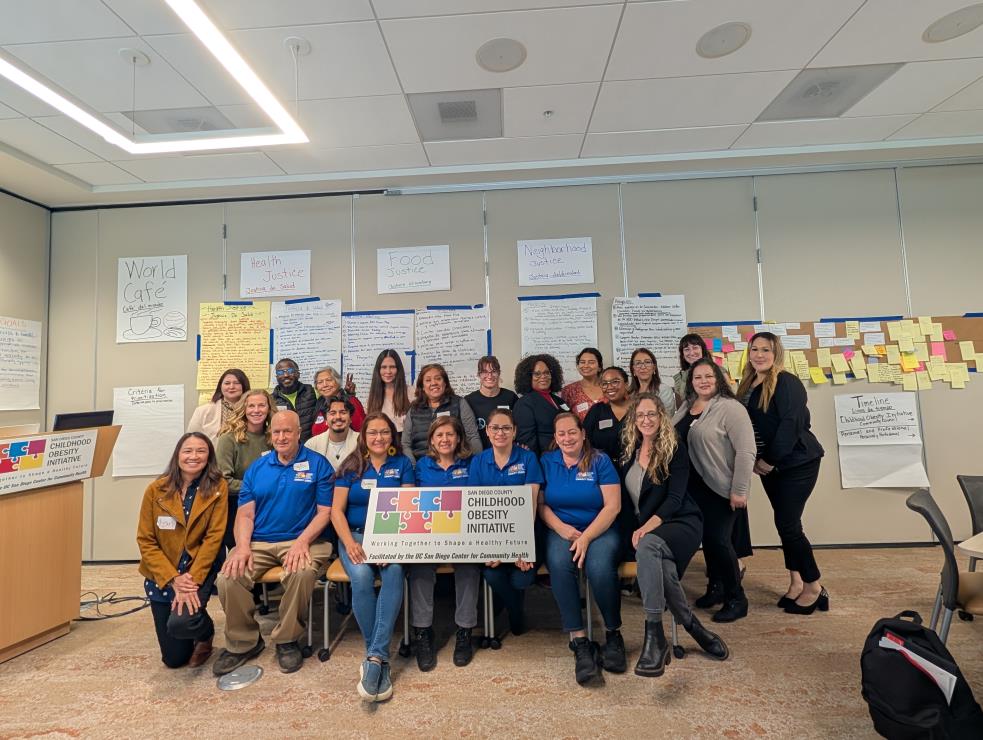
Black History Month Empowerment Fair
On February 21, representatives of the UC San Diego Center for Community Health, the COI, and the YMCA of San Diego County participated in the Black History Month Empowerment Fair, hosted by Joyce Moore of Thrive Lemon Grove—a community leader engaged in the KIN project. Held in Lemon Grove, the event celebrated Black history and community, featuring resources, Black-owned businesses, performances, dancing, educational activities, games, and more. Participants hosted an informational table to share resources, recruit for the COI Community Council, and distribute a food justice survey, inviting community members to share their perspectives on food justice.
